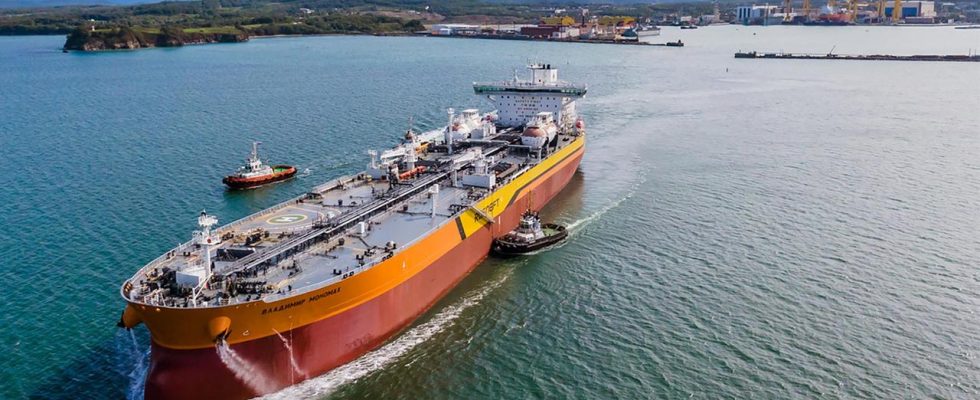The G7 countries are trying to reduce Russian oil revenues with the help of a price cap. But because Russia now often forgoes Western services, the sanctions are losing their effectiveness.
According to a media report, Russia is increasingly succeeding in circumventing the sanctions imposed by the G7 countries on its oil deliveries. The country is now expected to handle three quarters of its oil shipments without Western insurance, as the Financial Times (“FT”) reported today, citing freight analysis company Kpler and insurance companies.
In the spring it was still 50 percent. This increased the proportion of businesses that are not subject to the price cap of $60 per barrel.
Price cap of $60 per barrel has existed since December
In December last year, the G7 countries Germany, France, Italy, Japan, Canada, Great Britain and the USA introduced a price cap for Russian crude oil transported by sea because of the Russian attack on Ukraine. At the same time, the European Union (EU) also approved this sanction in addition to the existing general ban on imports into the member states. Buyers of Russian oil are only allowed to use Western services such as transport or insurance if they can prove that they have paid a maximum of $60 per barrel.
The measure was intended to reduce Russian revenues while at the same time keeping global energy markets stable through continuous deliveries, the EU Commission said. Another goal was to curb inflation. Since Russia once relied on Western services to get its oil to market, the G7 countries expected that the Russian government would have little choice but to comply with price controls.
Now, however, the data shows that Moscow is apparently becoming more and more adept at circumventing the price cap, writes the “FT”. This would allow the country to sell more oil at prices closer to international market prices. Global oil prices are currently at an exceptionally high level. Last week they reached their highest levels since last November.
At least $15 billion more in the war chest
This afternoon a barrel (159 liters) of North Sea Brent for delivery in November cost 93.39 US dollars. That was eleven cents more than on Friday. The price for a barrel of the American grade West Texas Intermediate (WTI) rose by four cents to $90.07. Prices have risen by around 25 percent since the beginning of July. The main reason is the tight supply from large producing countries such as Saudi Arabia and Russia.
According to the FT, the Kyiv School of Economics (KSE) also suspects that the steady rise in crude oil prices is linked to Russia’s success in reducing the discount on its own oil. In addition, the development also means that sales are likely to rise sharply. The Russian flagship product, Ural crude oil, has climbed to more than $60 since July, exceeding the actual price ceiling.
The KSE estimates that the country’s oil revenues in 2023 will likely be at least $15 billion higher than usual as a result. “Given the changes in how Russia ships its oil, it could be very difficult to enforce the price cap in the future,” said KSE expert Ben Hilgenstock from the “FT”. It is all the more regrettable that more has not been done in the past to enforce them correctly and sensibly.
With information from Till Bücker, ARD financial editorial team.

